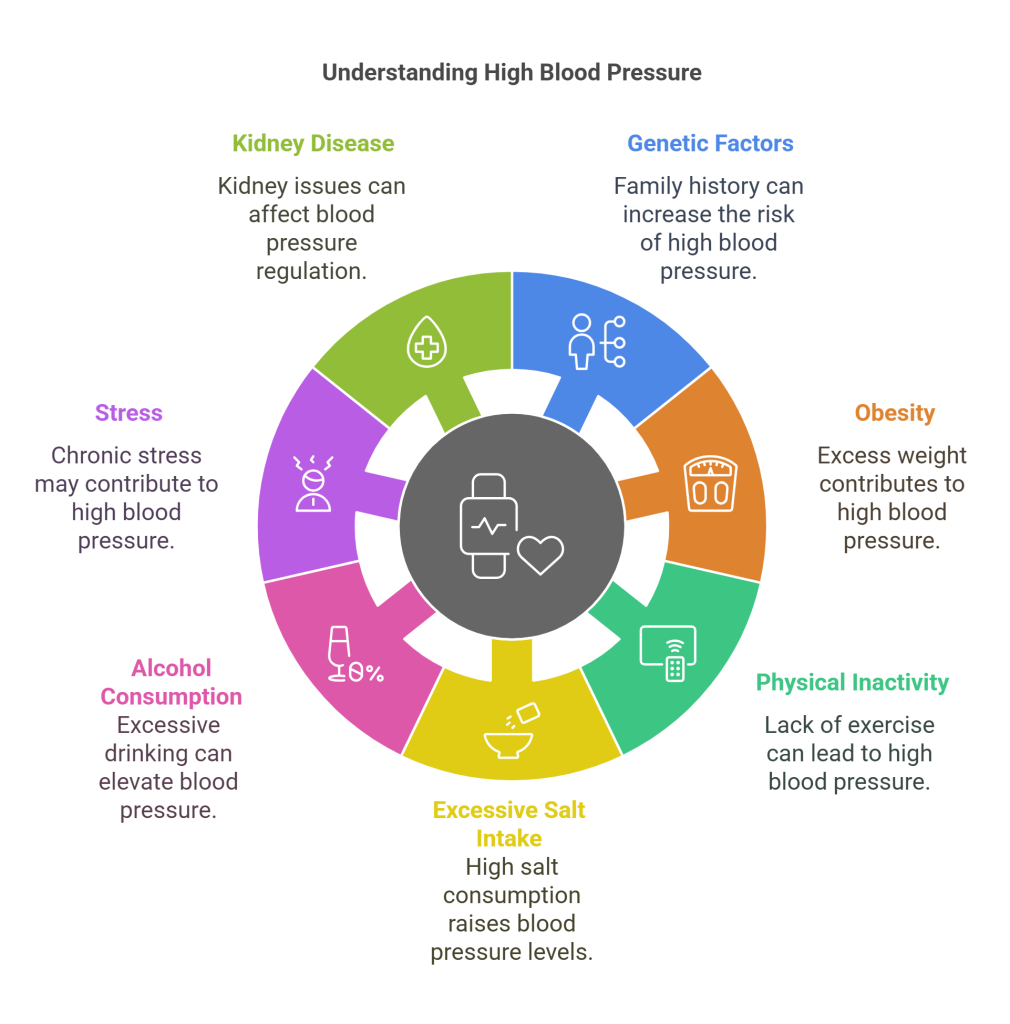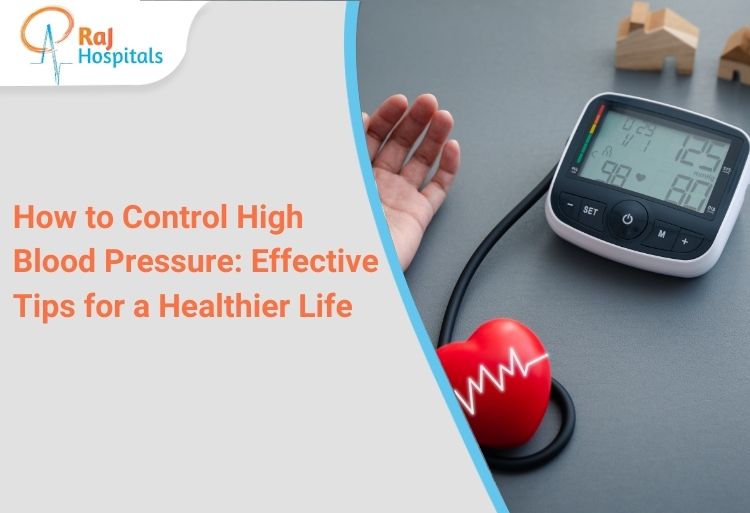High blood pressure, also known as hypertension, is a common condition that affects millions worldwide. It’s often referred to as the “silent killer” because it typically has no symptoms but significantly increases the risk of heart disease and stroke, the leading causes of death globally. Managing blood pressure is crucial for maintaining long-term health and preventing serious complications. In this comprehensive guide, we’ll explore practical tips and strategies to control high blood pressure and lead a healthier life, including insights on where to find top medical support, like the best hospital in Ranchi.
Understanding High Blood Pressure

What is High Blood Pressure?
High blood pressure occurs when the force of your blood pushing against the walls of your blood vessels is consistently too high. This condition forces the heart to work harder than normal, which can lead to damage to the cardiovascular system.
Causes and Risk Factors:
High blood pressure can be caused by a variety of factors, including genetics, obesity, lack of physical activity, excessive salt intake, alcohol consumption, stress, and underlying conditions such as kidney disease.
Reading the Signs:
Blood pressure is measured in millimeters of mercury (mm Hg) and recorded with two numbers: systolic pressure (the pressure when the heart beats) over diastolic pressure (the pressure when the heart rests between beats). A normal blood pressure level is less than 120/80 mm Hg.
Symptoms and Complications
Though hypertension might not always show obvious symptoms, some people may experience headaches, shortness of breath, or nosebleeds. However, these symptoms aren’t specific and usually don’t occur until high blood pressure has reached a severe or life-threatening stage.
The complications of unmanaged high blood pressure are severe and include:
- Heart attack or stroke.
- Aneurysms.
- Heart failure.
- Weakened and narrowed blood vessels in your kidneys.
- Thickened, narrowed, or torn blood vessels in the eyes.
- Metabolic syndrome.
Lifestyle Changes for Managing High Blood Pressure
Dietary Adjustments
The Role of Diet:
What you eat has a significant impact on your blood pressure. Incorporating the Dietary Approaches to Stop Hypertension (DASH) diet, which emphasizes fruits, vegetables, whole grains, and lean proteins, can help significantly.
Foods to Choose and Avoid:
Reduce your intake of salt, limit alcohol, and avoid high-fat foods. Instead, focus on potassium-rich foods like bananas and spinach which can lessen the effects of sodium in your body.
Regular Physical Activity
Exercise Recommendations:
Engaging in 150 minutes of moderate-intensity aerobic activity or 75 minutes of vigorous-intensity exercise per week can lower your blood pressure and improve your heart health.
Weight Management
Impact of Weight on Blood Pressure:
Excess weight forces your heart to work harder to pump blood. Losing even a small amount of weight if you’re overweight or obese can help reduce your blood pressure.
Stress Management
Managing Stress:
Chronic stress may contribute to high blood pressure. Techniques like meditation, deep breathing exercises, and yoga can reduce stress and improve your overall health.
Medical Management
If lifestyle changes alone aren’t effective in controlling your high blood pressure, medications may be necessary. Common types of medications include diuretics, ACE inhibitors, and beta-blockers. It’s crucial to work closely with your healthcare provider to find the right medication and dosage.
Alternative Therapies
While not a replacement for lifestyle changes or medication, alternative therapies like acupuncture or herbal supplements can complement your treatment plan. Always consult with your healthcare provider before starting any new therapy.
Community and Support
Support from family and friends is invaluable when managing a chronic condition like high blood pressure. Additionally, joining support groups where members share experiences and tips can be extremely beneficial.
Best Hospital in Ranchi for Comprehensive Care
For residents of Ranchi dealing with high blood pressure, accessing quality healthcare is essential. The best hospital in Ranchi offers comprehensive cardiovascular care with advanced diagnostic tools and treatment plans tailored to each patient’s needs.
Conclusion
Controlling high blood pressure is a multifaceted approach that includes lifestyle changes, medical management, and regular monitoring. By understanding and addressing the various aspects of hypertension, individuals can significantly enhance their quality of life and reduce the risk of serious health issues. Remember, managing your blood pressure is a lifelong commitment and requires regular medical checkups, especially at premier healthcare facilities like the best hospital in Ranchi.
Adopt these tips to keep your blood pressure in check, and make sure to consult with healthcare professionals who can guide you based on your individual health needs.
.svg)










